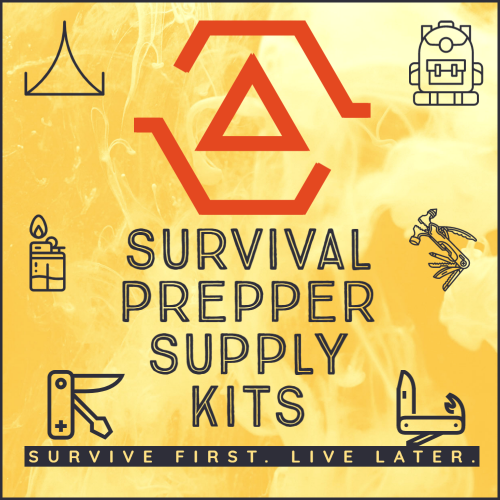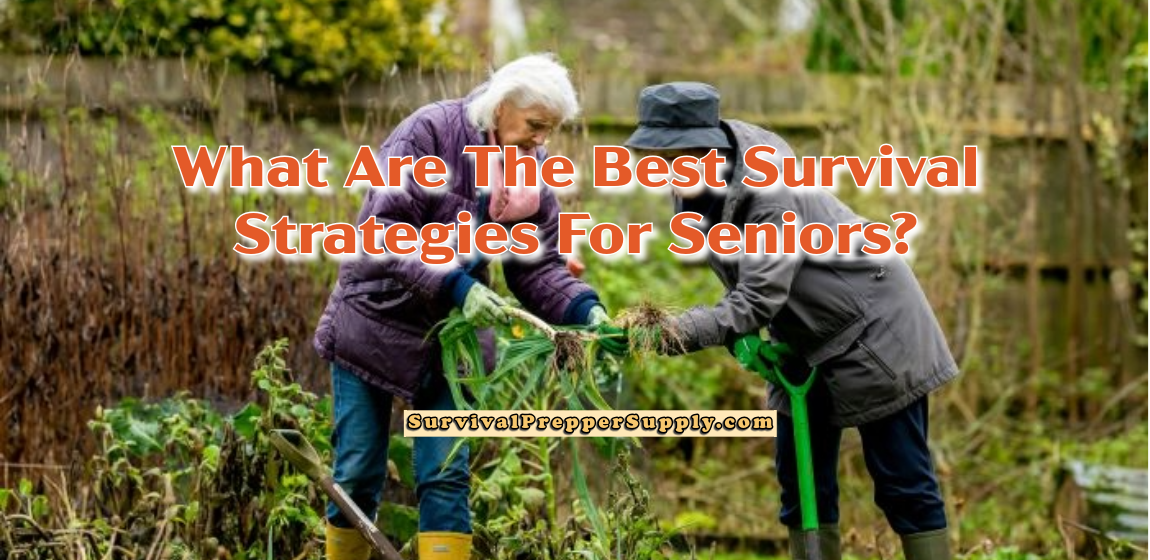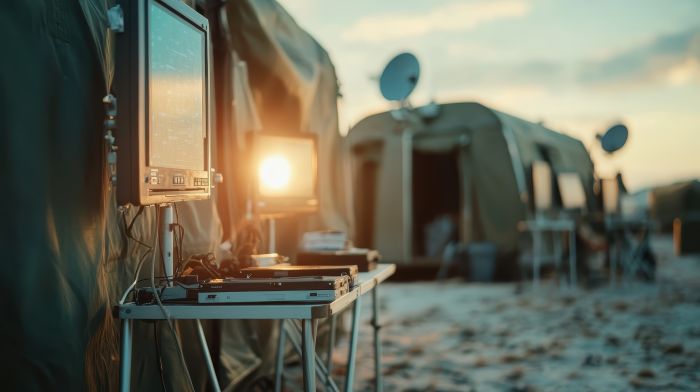Hey, all! Knowing what our senior family members can handle is essential for survival planning. After all, not all of us seniors are ready to sit on the sidelines. Plenty of us are sharp and we’re still quite spry, but you’ve gotta figure out our strengths and where we might need a hand.
It’s cool to let us pitch in with the prep work. We might not be up for carrying heavy loads or sprinting in emergencies, but we can help in other valuable ways. Maybe we’re great at gardening—put us in charge of the veggie patch to ensure you’ve got some fresh goods. Or perhaps we’re skilled at preserving food. Let us get creative with canning!
The focus here is not to overdo it. Everyone has their limits, and pushing past them could lead to injuries. If walking is challenging, find us a reliable cane, walker, or wheelchair. You wouldn’t want us to struggle with mobility when time is of the essence.
If floods are a risk where you live, you’ll be ready to help us move to higher ground quickly. Planning around our capabilities means we’ll be prepared when nature decides to throw a curveball.
Being frank about what we can’t do gives us a clear perspective so no one’s left in the lurch during an emergency. Like any good team, knowing how everyone contributes helps in survival and keeps spirits up—you never know when our knowledge might come in clutch.
Stockpiling Medications and Medical Supplies
When prepping for emergencies with seniors in the family, having a solid stash of medications and medical supplies can be a lifesaver. Start by jotting down all their current medications along with the dosing instructions. This list is key—not just for everyday use but for those “just in case” scenarios when pharmacies aren’t easy to reach.
Think beyond just pills. Consider the equipment they rely on. A blood pressure monitor, a wheelchair, or an oxygen tank might be part of their routine care. You’ll want to have these supplies ready to roll at a moment’s notice.
It’s also wise to put together an emergency binder where you keep everyone’s medical details. It’s kind of like your go-to guide for health info. You keep it accessible yet safe. Better yet, make a digital backup if you must leave in a hurry and don’t want to lug around paper files.
Let’s talk medications: keeping them organized ensures you don’t run out when the situation turns sideways. Also, make sure to swap out old meds regularly to keep your stockpile fresh—no one needs expired tablets when the chips are down! An electronic pill organizer can be your best friend in dodging mishaps.
And since power sometimes cuts out in emergencies, consider grabbing extra batteries or even a compact generator for any battery-powered gear. You’ll want peace of mind knowing your loved one’s life-saving devices aren’t out of action.
Customizing Food and Nutrition
Food isn’t a one-size-fits-all deal when setting up your pantry for seniors, especially when dietary needs come knocking. Ensuring you have the proper grub stocked is crucial, considering any allergies, dietary restrictions, or nutritional needs your elders might have.
Before you start piling up cans and boxes, convene with their healthcare providers to get the lowdown on foods they should be munching on. Doctors can give the green light on certain foods and warn you about ones to dodge.
Fill your shelves with nutrient-rich foods, but keep them tasty and accessible. Gourmet cooking shouldn’t be on the menu when you’re knee-deep in a survival situation. Think energy bars and dried fruits—stuff that’s practical and simple to prepare. Adding food supplements, vitamins, and minerals can help cover nutritional shortfalls.
Navigating food prep is way more manageable when you keep things local. Hunting down exotic ingredients in a crunch isn’t anyone’s idea of fun. Stick to pantry staples that can be found at your everyday supermarket. Rice, pasta, and oats are reliable eats when things get hairy.
Small tweaks like these make a world of difference, ensuring everyone stays fueled and healthy even when the going gets tough. Plus, knowing everyone’s well-fed helps keep spirits high during those testing times.
Creating a Safe Living Environment
A safe home isn’t just about comfort—it’s a critical part of survival, and when seniors are involved, it becomes an absolute must. Start by looking around the house to spot any potential hazards. Whether it’s loose rugs that could cause slips or clutter that is creating obstacles, addressing these little issues makes a big difference.
Communicating during emergencies is essential, so an easy-to-follow plan is vital. Think about how you’ll keep in touch if phone lines go down; maybe walkie-talkies or cell phones with extra battery packs can save the day when you need them most.
Home modifications might be necessary to ensure everything is accessible and secure. Consider installing grab bars in the bathroom or handrails along staircases. Even something as simple as placing flashlights around the house can help when the power is out.
Ensure all essential supplies, like medications, food, and medical gear, are within easy reach. You don’t want to dig through cabinets to find what you need when time is ticking. By taking these steps, you not only prepare for emergencies but also make everyday living a bit smoother for your senior loved ones.
Emergency Evacuation and Bugging In Plans
When emergencies hit, deciding whether to bug out or stay put is critical, especially when seniors are involved. For many, bugging in or staying at home can be less stressful than evacuating. It’s about creating a haven right at home, turning familiar surroundings into a well-stocked fortress.
Evacuation can be challenging, so having a plan is paramount. Organize and rehearse with your senior family members. Practice where to find and how to use your packed emergency bags. Ensure the bags contain necessities like medicines, water, and easy-to-eat snacks.
Transportation is another hiccup when bugging out with elderly folks. You’ll want to have alternative transportation plans ready. This could mean knowing the route to a local shelter or lining up support from friends or family with a ride.
A well-stocked home can be a game changer when you decide to stay. All those accumulated supplies will help you ride out the disaster in relative comfort. This means water, canned goods, and those essential medications. Bugging in can be a safe and smart option with a little prep.
Creating a strategy around both staying and leaving gives you flexibility. It’s about giving yourself peace of mind, knowing you’re ready for whatever comes your way. These plans don’t just ensure survival; they also provide much-needed security and comfort to everyone involved.
Mental and Emotional Preparedness
Taking care of physical needs is vital, but don’t forget the mental and emotional side, especially for seniors. Stress and anxiety can hit hard during emergencies, making emotional support just as crucial as having the right gear.
Providing a comforting presence can soothe nerves. Engage in open chats about feelings and worries. Sometimes a good conversation can work wonders for easing tension and boosting morale.
Besides talking, seniors should be engaged in activities that stimulate their minds. Puzzles, books, or even music can be great distractions. Not only do they help kill time, but they also keep spirits high and minds sharp.
Tapping into community support is another resource worth exploring. Many areas offer groups and services tailored for seniors that can provide additional help in times of need. These networks offer valuable resources and companionship, whether online or through local organizations.
Preparing mentally and emotionally isn’t just about being strong—it’s about having the right support to weather the emotional storms that come with any emergency. Keeping spirits up and recognizing the power of community can make all the difference.
As a senior, are you prepared for survival? If so, what have you done to prepare? Do you have a bug-out bag or a survival kit? How comfortable do you feel about bugging out, or will you stay home? Do you have assistance in your home for survival prep? Please leave a reply in the comments to assist others. Thanks!






